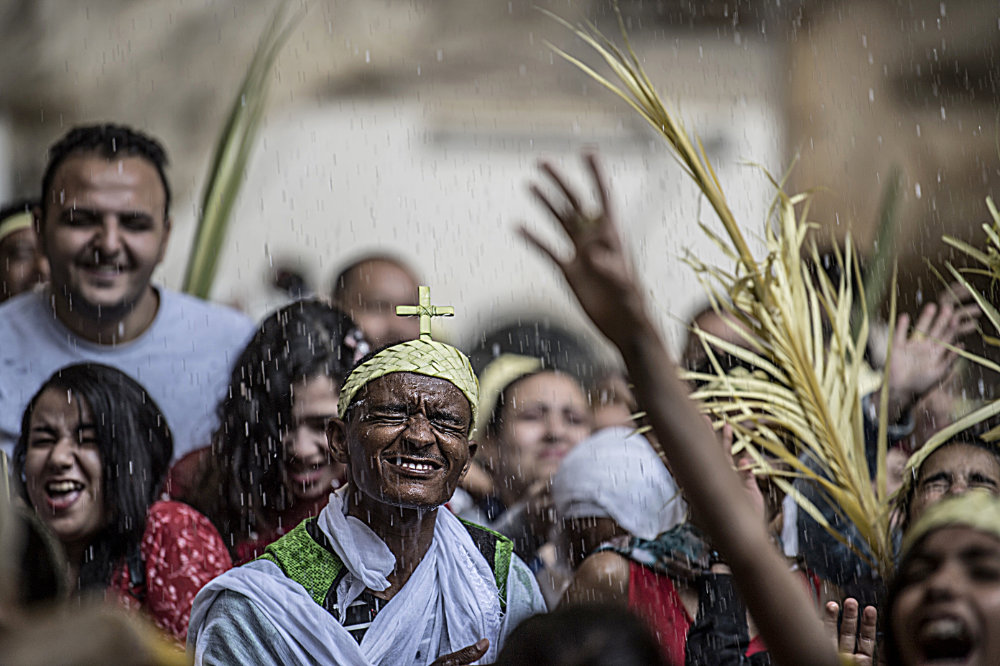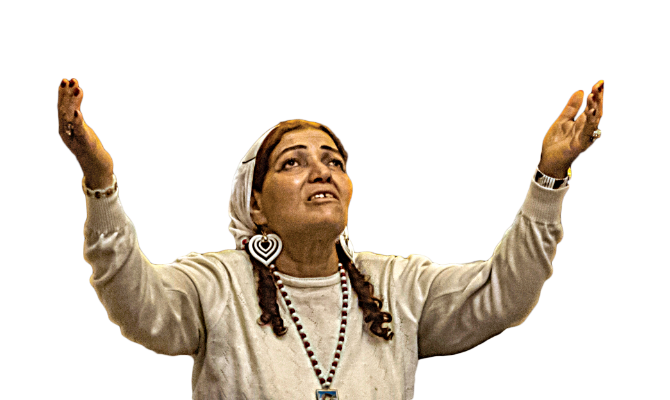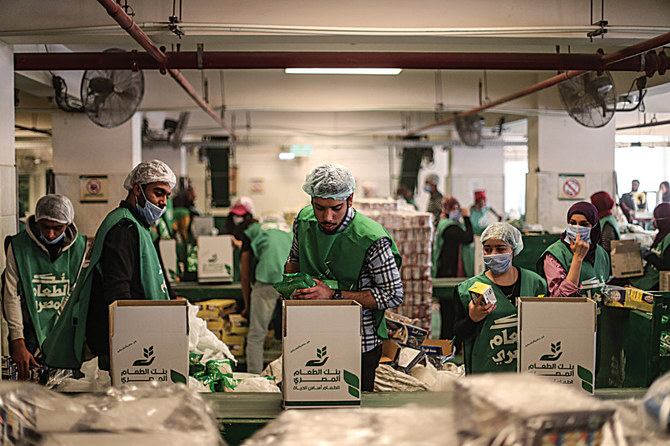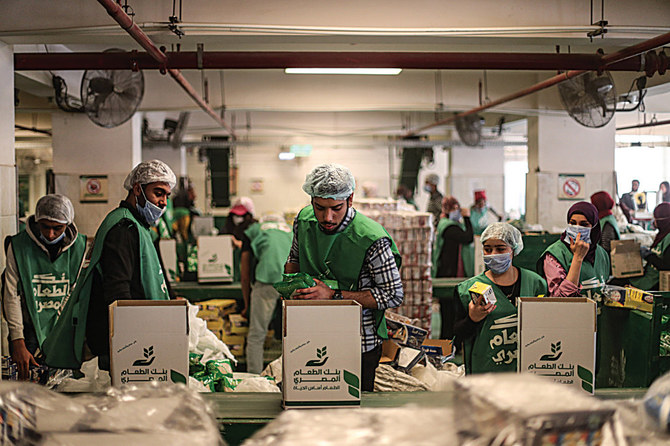CAIRO: Easter celebrations will be muted this year for Egyptian Christians under the constraints imposed by the coronavirus pandemic.
For the first time in its history, Egypt’s Coptic Orthodox Church has decided to suspend Holy Week and Easter-time prayers and services as part of a nationwide effort to stem the spread of the virus.
The Holy Week, which leads up to Easter, commemorates Jesus’ entry to Jerusalem a week before his crucifixion.
Basma Nassef had a flight booked from Cairo to Toronto to spend Easter with her father, but, like millions of people around the world, she has been forced to change her plans.
“The flight was cancelled,” she told Arab News. “I wish I could have spent (Easter) with (my father) so he’s not alone.”
As of Saturday, Egypt had recorded 135 deaths from 1,794 confirmed coronavirus cases, with 384 recoveries.
KEY DENOMINATIONS
- Coptic Orthodox
- Armenian Apostolic
- Catholic
- Maronite
- Anglican
In response, authorities have imposed tough measures to limit social interaction in the Arab world's most populous country, including extending a nightly curfew by two weeks.
The government has announced a ban on gatherings and celebrations on Coptic Easter, the non-religious springtime holiday of Sham El-Nessim, and all congregational prayers and events that commonly take place during the month of Ramadan.
Those violating the measures could face fines up to 4,000 Egyptian pounds ($250) and jail sentences.
Authorities have also closed schools and universities, while air traffic has been halted until at least April 15.

The Coptic Orthodox Church has been forced to close ahead of Holy Week for the first time in its history. (AFP)
Copts in Egypt — and all over the world — have been disappointed by the suspension of prayers in churches during Easter — a time when Christians honor the memory of Jesus’ resurrection, although most understand the reasoning behind the decision.
“Of course we are unable to do any of those rituals this year,” said Nassef, who is spending Easter in Cairo.
“It’s devastating and heartbreaking to be honest. This is a huge part of our religion — everything we believe is centered around this one event. A lot of it involves going to church, even more than we usually do, during Holy Week to pray and reflect on ourselves. This is a time where Christian families come together.”
It is the final week of the great fast that lasts for 55 days, and is largely observed by the Coptic community.
During a 55-day fast, of which Holy Week is the final week, Coptic Christians abstain from eating from midnight until before dawn the next day, and do not consume any foods containing ingredients from animals.
Opinion
This section contains relevant reference points, placed in (Opinion field)
The fast is broken on Easter’s Eve, when Coptic Christians go to church for prayer, then gather to celebrate.
Mirna Samy, a Coptic Christian, said it is difficult to feel the essence of Easter without being able to observe its cherished traditions.
Samy’s family will not be inviting people over to their house as they normally do. “We’ll just celebrate at home, and greet relatives and friends over phone,” she told Arab News. “For us, this Easter is different. We’re not feeling it. It feels like any other day.
“I’m sure we will keep it simple and not cook too many dishes since everyone is ‘social distancing’ and we won’t have people coming over to celebrate with,” she continued. “We are praying that this all will end soon.”
It remains unconfirmed if the televised midnight mass held by the head of the Coptic Orthodox Church, Pope Tawadros II ahead of Easter will take place as usual.
To compensate for their inability to attend church this Easter, Samy and her family said they hope to be able to watch the mass on television.

Worshippers will not be able to gather for the Easter midnight vigil. (AFP)
“Prayer always feels different at church,” she said. “But we will watch the Pope’s mass on TV.”
Many Copts on social media are reportedly planning to participate in Holy Week prayers from home. The priest in charge of one Facebook page suggested that housebound worshippers could create a special corner with a picture of the cross or use an actual wooden structure of the symbol. They could also light a candle, bulb or oil lamp beside a black cloth, he said.
The priest further asked the faithful to recite from prayer books or use PDF files of prayer scripts or any suitable smartphone app.
In an address from the main Coptic cathedral, Tawadros said he was confident “God's hand” will intervene in order to protect Egypt and all countries of the world from the pandemic.
As the celebration of the resurrection approaches, “we have hope that this exceptional period will soon be over,” he said.

The closures come in order to stop the virus from spreading. (AFP)
Sameh Mahrous, deputy editor at Egypt’s Al-Gomhuria Newspaper and an expert on Coptic affairs, said the measures taken by the church are necessary ones.
“All religions put the safety of humans first,” he told Arab News. “The decision to halt prayers during the Holy Week stems from the Church’s keenness on public safety, despite knowing how painful it is for Copts to not mark the rituals. It is in line with the Coptic church's view that the nation’s interest is above us all.
“The prevention of gatherings at places of worship has happened to Muslims already, when they had their mosques closed as a part of the precautionary measures,” he added.
Last week, in congratulatory messages to Muslims and Christians alike on their upcoming religious occasions, Egyptian Prime Minister Mostafa Madbouly underlined the importance of avoiding large gatherings.
“The unprecedented situation we’re going through calls for the need to avoid any gatherings, especially during the next weeks, which would see religious occasions for both Muslims and Copts,” he said.
Egypt suspended mass prayers at mosques on March 11. The Coptic Church suspended services on the same day.
Separately, the Islamic Endowments Ministry announced that public charity iftar tables, which offer free meals, will not be permitted this year. The ministry also said it will ban congregational prayers, including the taraweeh, which are only performed in Ramadan.






























